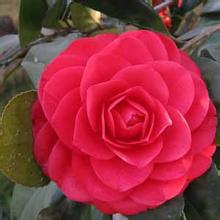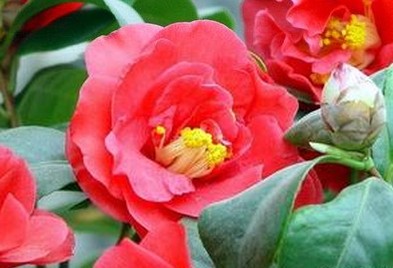How to cultivate camellia flower cautions
Camellia is often heard in our daily life, and there are many flower lovers who have a special preference for camellias, but some people are not good at camellia farming. What on earth is the reason? The following editor will bring you the methods of camellia culture and matters needing attention.

[culture method of camellias]
Place: camellias should be placed in a warm, moist, ventilated and transparent place. Sufficient light should be given in spring and shade should be paid attention to in summer to avoid direct sunlight and western basking. If you put it on the balcony, you will die in the sun if you are not careful.
Watering: the cultivation of camellia bonsai should keep the soil moist, but it should not be too wet to prevent dry and wet. Generally, it can be properly watered in spring to facilitate sprouting and shoots; in summer, it is best to spray foliar water to make the leaves drenched, not directly irrigated and fully irrigated, not hot water, to avoid high temperature before and after noon; appropriate amount of watering in autumn; watering in winter is appropriate before and after noon, but every two or three days.
Fertilization: camellias like fertilizer, should pay attention to put base fertilizer in the basin soil, mainly phosphorus and potassium fertilizer, including mature bone powder, hair, chicken feathers, rice chaff ash, poultry dung and superphosphate and other substances. Usually, it is not suitable to apply too much fertilizer, generally apply 2 or 3 times of thin fertilizer from April to May after flowering, and apply a slightly thicker water and fertilizer in autumn and November. When using fertilizer, we should pay attention to a slightly larger proportion of phosphate fertilizer in order to promote the blooming and colorful flowers.
Pruning: the growth of camellias is slow and should not be over-pruned, which will generally affect the tree-shaped overgrown branches as well as disease and insect branches and weak branches. If there are too many buds on each branch, only 1 or 2 buds can be left, and keep a certain distance, and the rest should be picked as soon as possible so as not to consume nutrients. In addition, it is necessary to pick close to withered flowers in time, which can also reduce the consumption of nutrients to facilitate the robust growth of plants and the formation of new flower buds.
Turn the basin: the bonsai of camellias can be turned once every two years, and the new pot should be larger than the old pot No. 1 to facilitate the stretching and development of the root system. The time to turn the basin should be in April in spring, or in autumn. Combined with soil exchange, properly remove part of the consolidated old soil, replace it with fertile and loose new soil, and place base fertilizer in combination.

[matters needing attention in camellia culture]
1. Pay attention to drainage during the rainy season so as not to cause waterlogging and decay of the roots.
2. For fear of direct light exposure, the seedlings need shade. Leaf burns occur when the summer temperature exceeds 35 ℃.
Be careful not to let the roots rot.
4. Pay attention to diseases and insect pests in camellia culture: the main diseases of camellias are black mold and anthracnose, which can be controlled by spraying 0.5 degree Bordeaux solution. The main pest is tea shoot moth, and the control method can cut off the insect tip, which is generally carried out from April to June.

Decorate the net.
Related
- Wuhan Hospital Iron Tree Blooming Result Was Instantly Frightened by the Gardener Master
- Which variety of camellia is the most fragrant and best? Which one do you like best?
- What is the small blue coat, the breeding methods and matters needing attention of the succulent plant
- Dormancy time and maintenance management of succulent plants during dormancy
- Minas succulent how to raise, Minas succulent plant pictures
- What are the varieties of winter succulent plants
- How to raise succulent plants in twelve rolls? let's take a look at some experience of breeding twelve rolls.
- Attention should be paid to water control for succulent plants during dormant period (winter and summer)
- Watering experience of twelve rolls of succulent plants
- Techniques for fertilizing succulent plants. An article will let you know how to fertilize succulent plants.



